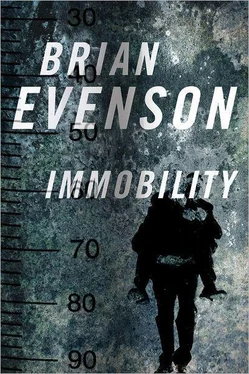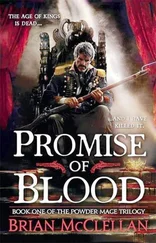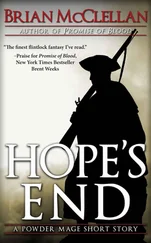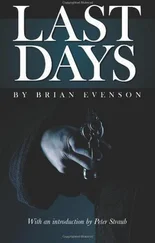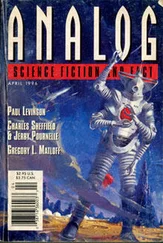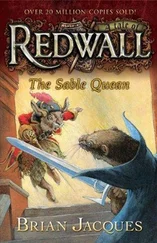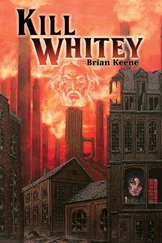* * *
THE OUTER DOOR OPENED despite the alarm. He managed to bump the wheelchair over its lip and out into the hall. Turning around, he nudged the door closed, was pleased when it eased its way back into place, though less pleased when he didn’t hear the lock click.
A pale light was leaking far into the tunnel. It was dawn or perhaps slightly later. He rolled down the hall as quickly as he could, until he reached the metal grate. From there, he shouted for the mules until finally they lumbered into view.
“Where did you find a wheelchair?” asked Qatik.
“Long story,” said Horkai. “We have to go. I had to kill someone back there.”
“Did you cut off his head?” asked Qanik.
“What?” asked Horkai, surprised. “No, of course not.”
“Then he is not dead,” said Qanik. “You always have to cut off the head.”
“Doesn’t matter now,” said Horkai. “Right now all that matters is that you get the gate up and get me out of here before the others wake up.”
Qatik looked Qanik up and down, then turned back to Horkai. “I’m sorry,” he said. “We can’t do it.”
“What do you mean you can’t do it?”
“Look at us,” said Qatik. “Qanik can barely stand. We have eaten nothing for several days. We do not have the strength to lift it farther. We are dying, Josef. You will have to crawl out. You will have to leave your chair behind.”
“Do you have the cylinder?” asked Qanik. His face was barely visible now through his faceplate, which was thick inside with smeared blood. Horkai saw Qatik, too, had been coughing up blood, though not quite so much, not yet.
“I’ve got it,” said Horkai.
“All praise be to his name,” said Qanik. “Then our purpose can still be accomplished. Our deaths will not be in vain.”
* * *
ONCE HORKAI HAD SLIPPED OUT of the chair and had gotten his head through, Qatik dragged him the rest of the way out. But it was Qanik who insisted on carrying him.
“No,” said Qatik. “You are too sick. You are too dead.”
“I can do it now,” said Qanik. “For a mile or two. I will not be here to do it later. You need to save your strength for the rest of the way.”
And so they set out, the sun to their backs, walking as quickly as they could back the way they had come, Horkai again balanced on Qanik’s shoulders. The going was easier now, the road winding downhill. They moved slowly back down the canyon, seeing signs of ruined civilization gradually reappear and thicken. And now, from this direction, Horkai could see, through the haze, to the north, the devastated center of the metropolis, a huge deep crater, maybe a quarter mile across, maybe even wider. He suddenly recalled what it had looked like before, several dozen large buildings, twenty or thirty stories each, and many smaller ones, including the dome of the tabernacle and the six sharp spires of the Mormon temple. Nothing was left now: the buildings that had been within it and all around it were completely gone, reduced to ash. Around that was a belt of ruins—buildings with a few walls still standing, but mostly a field of rubble. Only gradually, far from the center of the blast, did actual houses begin to appear. And then, as the road descended lower, it all fell out of sight.
“Why did they do it?” asked Horkai.
“Why what?” responded Qatik.
“The Kollaps.”
Qatik shrugged. “It just happened,” he said. “That’s what Rasmus says.”
“An accident?”
“That hardly seems a sufficient word for it,” said Qatik.
Horkai nodded. These things happen, he thought, his mind taking a strange turn, and then we say we didn’t mean it, that it was an accident, that it will never happen again. Never again we say: God will not allow it. We say no to torture, and then we find a reason to torture in the name of democracy. We say no to sixty-six thousand dead in a single bomb blast over a defenseless foreign city, and then we do it again, a hundred thousand this time. We say no to eight million dead in camps, and then we do it again, twelve million dead in gulags. Humans are poison. Perhaps it would be better if they did not exist at all.
* * *
THE SUN ROSE HIGHER, still hidden behind the haze, and as the day went on, the wind rose and the dust along with it. Half the time Horkai was squinting and coughing, trying to breathe through his shirt, despite the blood stiffening it.
“Any water?” he asked.
Qanik said nothing, just kept plodding forward, his steps deliberate and relentless.
“No food either,” Qatik said. “Nothing left at all.”
Horkai thought again of the water deep within the mountain, slowly trickling out of the rock. It made his throat itch.
“Will we make it back?” he asked.
Qatik, half-turning, took a long look at Qanik and then looked up at Horkai. “One of us will,” he said. “Maybe.”
* * *
HE WATCHED MAHONRI’S PAINTED SIGNS die out, replaced slowly by signs stripped to bare metal, communicating nothing. Lulled by Qanik’s awkward but constant gait, he entered a kind of reverie. He thought again of Mahonri, so trusting, believing he was doing the Lord’s work, taking a stranger in and falling asleep beside him without a trace of suspicion. He thought again of the way Mahonri had heaved himself up just before collapsing and whispered, Why? He wondered if the mules were right, if Mahonri was, even now, lying on the floor of his shack, his wounds sealing, his throat becoming smooth and opaque as his body re-formed itself and brought him back to life. Or if he was simply dead. He thought of the storage units, the alarm going off, the way one of the units had started to thaw, waking up a new keeper. Would the new keeper come after them immediately, while the trail was still fresh, or would he stay and nurse Mahonri back to health, assuming he wasn’t dead? Always cut off the head, he remembered hearing one of the mules say again—which had it been? Or perhaps they would come after him as a group, four or five at once, hunting him down for what he had done. No, he suddenly realized, his thoughts leaping back to an earlier track, it wasn’t that Mahonri let in a stranger; it was that he let in a brother. I look like him. He trusted me because of that. That was why Rasmus needed me for this: not because the keepers wouldn’t recognize me, but because they would think they would. As soon as I saw Mahonri, I should have realized.
“Qanik?” said Horkai. The mule below him had started to weave a little bit. He slapped the side of his hood lightly and the man stopped, then shook himself and continued on, a bit straighter this time.
“Qatik?” said Horkai loudly. “Maybe you should take me now.”
Qatik moved closer, touched Qanik’s arm. “I am all right,” said Qanik, his voice forced out. “I will still carry him.”
The mule kept walking, his step a little slower now, a little heavier, a little jerkier, perhaps. He was bent over more, seemed to be staring at his own feet. Qatik stayed close beside them now, just a little behind, keeping close watch.
They kept walking, and Qanik somehow kept going, both Qatik and Horkai growing more and more anxious. The freeway was visible, the road they were on sloping downhill, and Horkai let himself be lulled again by the motion.
“Qatik,” said Horkai.
“What is it?” asked Qatik, not looking away from Qanik.
“Have you ever met someone like me?”
“What?” said Qatik. “Like you?”
“Yes,” said Horkai.
“Not me personally,” said Qatik. “No.”
“But you knew the keepers in Granite Mountain looked like me.”
“Yes, of course,” said Qatik, surprised. “Why else would Rasmus need you?”
Читать дальше
